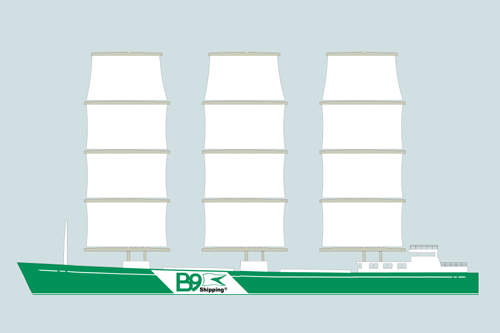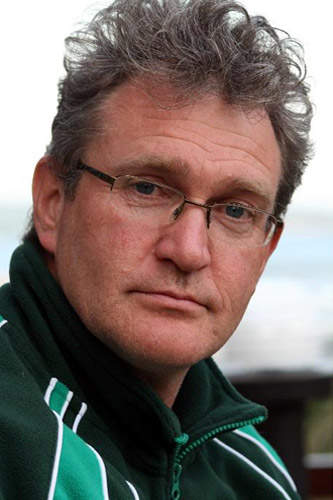Ireland-based B9 Shipping, a subsidiary of B9 Energy Group, is developing carbon-neutral coastal vessels that will be commercially viable in terms of price and performance compared to conventional oil-powered seagoing vessels.
As part of its vision to develop cargo ships fully powered by renewable energy and with a lifespan of 30 years, B9 Shipping plans to build a demonstrator vessel.
Green design
The ships will have a hydrodynamic hull constructed from flat-pack pre-cut steel. The vessels will be made from sustainable materials and using green technologies.
The growing focus on slow steaming in shipping to conserve fuel and reduce emissions will also help B9 to compete with conventional oil-powered vessels in cargo delivery schedules.
The vessels will promote clean economic development by providing fossil fuel-free transhipment solutions. B9 ships will support the UK biomass energy market by importing biomaterial from the Baltic nations to the UK. The vessels are expected to have an economic range of 1,000 miles.
Development and testing details
The ships are being developed in collaboration with several companies, including Corus Steel, Rolls-Royce, Graig Investments, International Paints, Southampton University’s Wolfson Unit for Marine Technology and Industrial Aerodynamics (WUMTIA), and the Met Office.
Graig Investments was engaged to provide guidance on ship design, building and financing.
B9 Shipping has begun work on a full-scale demonstration vessel to validate the engineering and economic assumptions of the initial vessel design.
The company partnered with WUMTIA for fundamental testing of the model ship using towing tank and wind tunnel research.
The focus area of the testing, which commenced in 2012, was to identify a basic hull design and analyse how it interacts with the dyna-rig sail system.
The objective was to study different options for predicting performance characteristics of the scale model ship. The testing programme involved calibration of the thrust from the sailing rig with different hull shapes.
Humphreys Yacht Design and WUMTIA completed the feasibility study for the development of a modern, environmentally friendly sailing cargo ship design in 2012. As part of the design process, the hull parameters were studied using Humphreys Yacht Design’s computational fluid dynamics (CFD) and velocity prediction programme (VPP) software.
The feasibility study focused on the 3,000dwt to 4,000dwt cargo vessel sector. The design is expected to provide more manoeuvrability than conventional commercial vessels.
Construction details
The fossil fuel-free cargo ships will initially be constructed in the north-east of England, before being transferred to developing countries.
The construction will involve sustainable methods wherever possible. The steel plates used in the vessels will be created from recycled steel that will be melted using heat from torrefied wood, a process that does not release fossil carbon into the atmosphere.
The ships’ performance will be improved by using light construction materials to reduce their weight. The vessels will also use soft sails and biogas-powered engines.
European steel producer Corus will supply the steel plates for the hulls of B9 Shipping’s fleet. The biogas required for the vessels will be supplied by B9 Organic, a sister company of B9 Shipping. Paint will be supplied by UK-based International Paint.
Propulsion
The biogas-powered engine will provide 40% of the necessary propulsion power. The remainder will be supplied by the soft sail system. It will be possible to operate the engines with LNG in the absence of biogas.






